Premium Only Content
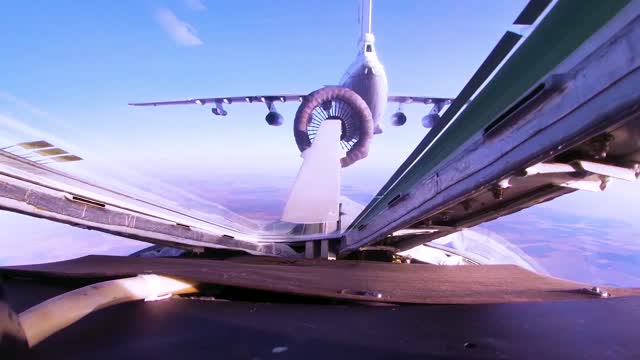
Russian Cadets Put Air Force Heavyweights Through Their Paces
Russian air force chiefs have been putting their new round of recruits through their paces by flying some of their heavyweight operators during a series of exercises recently in the Saratov region.
Taking part in the exercise were the heavy bomber aviation regiment which sent out flights of Tu-160 and Tu-95 strategic missile carriers as part of the 2021 end of academic year performance review.
The Tupolev Tu-160 is a supersonic aircraft that functions as a heavy strategic bomber that was first unveiled in the 1970s. It entered the record books as the largest and heaviest of the supersonic military aircraft capable of flying at Mach 2+.
But it also holds the record as being the largest combat aircraft and being the heaviest, as well as being the fastest of the bombers and also holds the record among variable sweep wing airplanes as being the largest and heaviest too.
The Tu-95 is also a large turboprop-powered strategic bomber that also functions as a missile platform and has four large engines. This plane was first unveiled in the 1950s and it is planned to keep it in service at least until 2040.
The main objective of the exercise was to make sure that the flight crews are operationally ready at all stages by putting them through a series of exercises to check performance.
It was also the opportunity for additional training both during daytime and night-time exercises, as well as refueling in the air and flying in formation over different distances.
The training was critically important for the new arrival crew members to gain experience of working with the instruments in the company of experienced senior airmen.
They also trained in handling emergency situations, from engine failures through to what to do when having sustained damage.
Major Leonid Fateev, senior inspector-pilot of the combat training department of the Guards compound, said: "Crews and engineering and technical staff are coming to the finish line for the final test of the academic year, covering all issues, both theoretical and practical. A specially created commission will assess the readiness of the squadrons and the personal skills of each soldier."
It was not just training for the flight crews, but also for the engineering and technical staff on the ground who had to work out how to maintain and keep the aircraft in the air to a tight schedule.
-
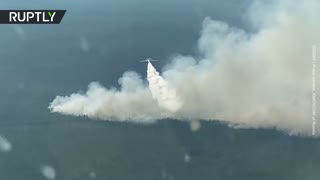 0:55
0:55
RT
4 years agoRussian Air Force battles against Yakutian wildfires
64 -
 0:29
0:29
ViralHog
3 years ago $0.01 earnedTornado Rips Through Russian Field
235 -
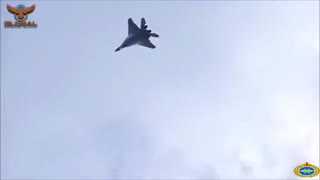 1:25
1:25
Nyrs
4 years agoRussian air force. mig 35 display2020.mig 35 airshow for this Russian .......
48 -
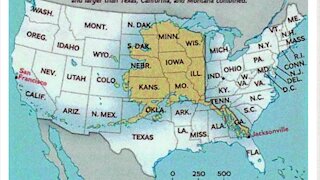 0:19
0:19
WSYM
3 years agoOne of their more challenging trips was through Alaska
14 -
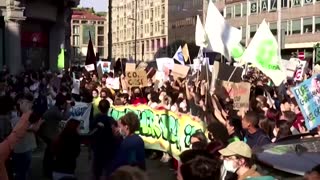 1:05
1:05
Reuters
3 years ago'We see through their lies': Thunberg's climate cry
60523 -
 59:16
59:16
VINCE
4 hours agoThe Kamala Comeback Is Here | Episode 94 - 08/01/25
148K101 -
 LIVE
LIVE
LFA TV
16 hours agoLFA TV ALL DAY STREAM - FRIDAY 8/1/25
4,601 watching -
 1:47:49
1:47:49
Dear America
4 hours agoHILLARY EXPOSED!! New Files Reveal She Was Behind It ALL!!! + Kamala Breaks Silence!!
100K79 -
 1:25:42
1:25:42
The Big Mig™
4 hours agoHillary Clinton & George Soros To GITMO NOW!!!
4.12K8 -
 1:41:12
1:41:12
Badlands Media
8 hours agoBadlands Daily: Aug 1, 2025
35.5K6